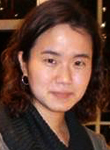Electing - rather than appointing - state court judges has drawbacks, study finds
By Linda B. Glaser

In traditional economic thought, competition is always good, and just as it's good for the economy, competitive elections should also make things better. But elections of public officials such as judges may have serious drawbacks. In the case of state court judges, for example, elected judges are far more variable in their sentencing than appointed judges, according to a new study.
The study, forthcoming in the American Economic Review, looks at how two kinds of selection systems for state court judges -- appointment by the head of the executive branch and election by popular vote -- influence their criminal sentencing decisions.
"People see competition as good, but I look at the way incentives are determined so I can see when it is effective in a particular situation," explains political economist Claire Lim, assistant professor of economics and the Sheng-Larkin Sesquicentennial Faculty Fellow.
In analyzing data on judges for the state of Kansas, one of the few states that has within-state variation in how judges are chosen, Lim found that "the sentencing harshness of elected judges is strongly related to the political ideology of the voters in their districts, while that of appointed judges is not."
Lim points out that governors have an advantage when appointing judges because they are likely to have more accurate information about the political preferences and sentencing approaches of a candidate than is generally available to voters during a campaign. "How many voters are smart enough to interpret legal decisions and judge the judges?" she asks.
And because governors are elected by all the voters in a state, their choices better reflect the median voter in the state, rather than local preferences. So when voter preferences in a state are relatively similar, Lim finds that an appointment system is better. "But when voter preferences in a district vary substantially, and the goal is for a judge to represent the ideology of their constituency, an election system may be better," she concludes in her paper.
However, re-election concerns may have the drawback of reducing the quality of judges in an electoral system by discouraging qualified candidates who are doing well in the private sector from holding office.
Lim points out that public critique during a campaign is a disincentive to lawyers to seek office; this can result in the best candidate for a judgeship declining to compete for the position. Such lawyers would be likely to serve in an appointed system, however.
"We should focus more on designing a good system that reflects these lessons from the data," she says.
Lim's study was funded by the National Science Foundation.
Linda B. Glaser is staff writer for the College of Arts and Sciences.
Media Contact
Get Cornell news delivered right to your inbox.
Subscribe